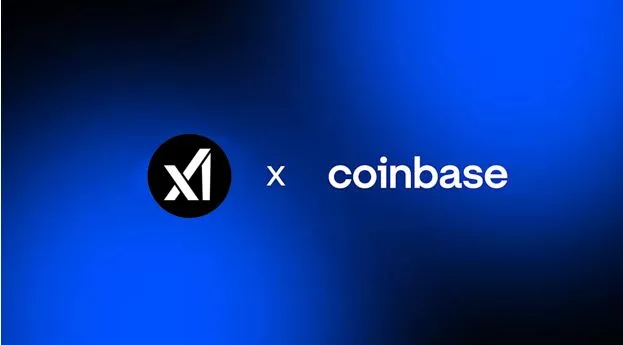The Injury Wasn’t Your Fault, But the Bills Sure Feel Like Your Problem
Accidents happen in an instant, but the aftermath can linger for months or even years. Whether it’s a car crash, a slip and fall, or a workplace injury, the physical pain is often only part of the burden. The mounting medical expenses, lost wages, rehabilitation costs, and household responsibilities can quickly become overwhelming. It’s especially frustrating when you know the injury wasn’t your fault, but the financial consequences are squarely on your shoulders.
This article explores how accident victims can cope with these challenges, understand their rights, and access solutions that help ease the financial strain.
Understanding the Hidden Costs of an Injury
Medical Expenses Add Up Quickly
After an injury, the first wave of bills usually comes from the hospital. Even with insurance, emergency room visits, ambulance rides, imaging scans, surgeries, and follow-up appointments can result in thousands of dollars in out-of-pocket costs. Many people also face ongoing physical therapy, prescription medications, and mental health services, especially if the trauma was severe.
Lost Wages and Earning Potential
When an injury prevents you from working, your regular paycheck might stop while your bills continue to arrive. Whether you’re hourly, salaried, or self-employed, time off work can put a serious dent in your financial stability. In more serious cases, victims are never able to return to their former occupation, resulting in reduced lifetime earnings.
Non-Economic Impacts With Economic Consequences
Pain, suffering, emotional trauma, and reduced quality of life aren’t directly measurable in dollars, but they can result in financial loss. For example, an injured parent may need to hire child care, or someone experiencing PTSD may require long-term psychological care. These indirect costs can strain your finances in unexpected ways.
Who’s Supposed to Pay?
The Legal Foundation of Personal Injury Claims
If someone else’s negligence caused your injury, they or their insurance should be responsible for compensating you. This is the foundation of personal injury law. According to Wikipedia’s article on personal injury, victims can file civil claims to seek compensation for medical expenses, lost income, and pain and suffering. However, these cases can take months or years to resolve, and settlements often don’t come fast enough to cover immediate expenses.
Insurance Companies: Help or Hurdle?
In a perfect world, the at-fault party’s insurance would swiftly pay out a fair settlement. In reality, insurance companies often delay, deny, or undervalue claims. Adjusters may dispute liability, minimize your injuries, or pressure you into a lowball offer. Meanwhile, your financial situation worsens.
What If You Don’t Have the Money to Wait?
When funds are tight, many injury victims feel forced to accept a smaller settlement just to cover urgent expenses. But this can leave money on the table, money you rightfully deserve. That’s why it’s critical to explore other options for managing your finances during a personal injury case.
Bridge the Gap: Financial Support Options for Injury Victims
Health Insurance and Medical Liens
If you have health insurance, it may cover some of your medical treatment but deductibles, copays, and uncovered services can still be costly. Some healthcare providers will treat patients under a lien agreement, meaning they’ll get paid from the future settlement. This delays the need for upfront payment but can complicate your final settlement.
Disability Benefits
Short- or long-term disability insurance, if you have it, may provide partial income replacement. However, these benefits can take time to activate and may not cover the full extent of your lost wages. In some cases, applications are denied, leaving you with few alternatives.
Legal Funding for Personal Injury Plaintiffs
A growing number of injured plaintiffs are turning to pre-settlement funding as a way to stay financially afloat. Personal injury legal funding allows you to access a portion of your expected settlement before your case is resolved. It’s not a loan in the traditional sense if you lose your case, you don’t have to repay it.
This type of funding can be used for rent, groceries, medical bills, or any other expenses you’re struggling with. It gives you the breathing room to pursue full compensation, rather than settling early out of desperation.
Protecting Yourself During a Legal Battle
Work With a Personal Injury Attorney
Navigating the legal system without guidance is risky. A seasoned personal injury attorney can help build your case, negotiate with insurers, and fight for the maximum compensation. Many work on a contingency fee basis, meaning they only get paid if you win. That makes quality representation more accessible even when money is tight.
Keep Detailed Records
To support your case and your financial recovery, document everything. This includes:
- Medical records and bills
- Doctor’s notes and prescriptions
- Time missed from work
- Accident reports and witness statements
- Photos of injuries or property damage
- Receipts for out-of-pocket expenses
The more thorough your documentation, the stronger your case and the more likely you are to recover full compensation.
Don’t Settle Without Reviewing the Long-Term Costs
It’s tempting to grab the first settlement offer, especially when bills are piling up. But always review the long-term implications. Does the settlement cover future surgeries or ongoing therapy? What about long-term loss of earning capacity or emotional trauma? An attorney can help estimate the true value of your claim so you’re not shortchanged.
Emotional Toll and Mental Health
Psychological Impact of Financial Stress
Even if your physical injuries are healing, the emotional aftermath of an accident can linger. Anxiety, depression, and PTSD are common and often worsened by financial insecurity. Don’t ignore mental health struggles. Many victims benefit from speaking with a counselor or joining a support group.
Asking for Help Isn’t a Sign of Weakness
Friends and family may not fully understand what you’re going through, but don’t isolate yourself. Whether it’s financial assistance, childcare, transportation, or just someone to talk to, letting others help can lighten your load and improve your recovery.
Conclusion: You Didn’t Cause the Injury, You Shouldn’t Have to Shoulder the Burden
Suffering an injury due to someone else’s negligence is bad enough. Being saddled with medical bills, missed paychecks, and financial anxiety on top of that only adds insult to injury. But you’re not powerless. Legal options, financial resources, and community support are available to help you bridge the gap and get through the storm.
With the right help, be it a trusted attorney, a fair funding solution, or a strong support system, you can hold the responsible party accountable and pursue the full recovery you deserve.







